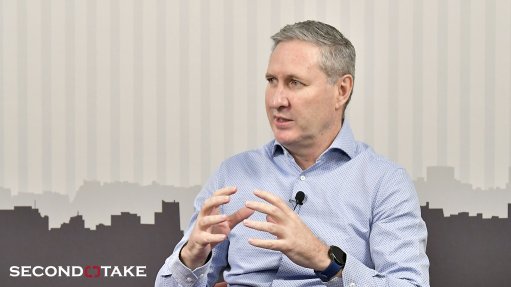Car-sharing could hold the key to the future of SA's mobility in urban areas
This article has been supplied by the author and has not been written or solicited by Creamer Media. It may be available only for a limited time on this website.
By Edward Makwana, Legacy Motor Group (LMG) General Manager of Public Relations, Marketing and Customer Experience
The smooth, efficient movement of people and goods is vital to economic activity and growth, which is why the development of any country is inextricably linked with its transportation system. So, amidst South Africa’s many transportation challenges, the emergence of car-sharing represents significant and exciting opportunities for boosting socio-economic development and inclusive growth.
“Unfortunately, many South Africans continue to grapple with an unequal, inefficient, and unreliable public transport system that hinders the efficient movement of people,” says Edward Makwana, Legacy Motor Group (LMG) General Manager of Public Relations, Marketing and Customer Experience.
“But as we’ve seen from the rise in car-sharing in many parts of the world, this model could provide a solution to many of the country’s transportation needs, offering an attractive transport alternative – particularly in urban areas.”
Car-sharing is a system where individuals utilise a shared car for a specified period. Typically, these users reserve a car through an app or website and pick it up from a designated location. They are then free to use the car for their transportation needs and return it to the same or a different location when they are finished.
Makwana notes that this model offers a convenient, low-cost model which could appeal to thousands of households, especially in urban areas.
“With increasing interest rates, many South Africans struggle to afford their own vehicles and insurance costs, but car-sharing could offer both a more affordable alternative to private vehicle ownership, and a more convenient alternative to public transport and current ride sharing platforms,” he says.
Demonstrating the need for more efficient transport options, the 2020 National Household Travel Survey reveals that as many as 17.4 million South Africans currently opt to walk all the way to their destination, while 10.7 million individuals make use of taxis and only 6.2 million utilise a car or truck. Additionally, with many commuters living far away from their workplaces, it is estimated that households spend between 15% and 30% of their disposable income on travel.
“Against this backdrop, car-sharing could provide the alternative solution needed to enhance consumers’ quality of life and reduce long-term financial commitments.”
Benefits for businesses, commuters and the environment
While there may be concerns regarding the impact of car-sharing on sales, Makwana notes that the model may prove to be beneficial to businesses by allowing idle vehicles to generate additional revenue.
“The rise of car-sharing will not necessarily translate to fewer vehicle sales, as car-sharing businesses will be forced to update their fleets regularly because of high usage. In essence, this model may also attract new customers away from other inconvenient public transport modes,” he says.
“Car-sharing could hold additional benefits for commuters and the environment. For example, international case studies show us that car-sharing could boost the fight against carbon emissions, as vehicle-sharing and ride-hailing companies tend to prioritise modern, low-emission vehicles that fit an eco-friendlier image,” he says.
As one example, American mobility services company Zipcar has stated that the average lifespan of a vehicle in its fleet is only about a year to 18 months before it is sold on. To further reduce its carbon footprint, the company is also striving towards an all-electric fleet by 2025.
Likewise, ride-sharing pilot projects in Europe have proven successful in reducing traffic congestion, lowering emissions and increasing the affordability of transport, such as various car-sharing services like ShareNow, which is currently operating in 16 major cities in eight countries in Europe.
“The success of pilot projects in Europe further suggest that car-sharing could be a viable option in South Africa, particularly in busy urban areas given increasing urbanisation, with huge benefits for businesses and commuters. While South Africa is a very different country from the six European countries surveyed, the benefits of this concept are universal.”
There are already some car-sharing initiatives in the country, such as Locomute, which is providing a flexible and budget-friendly transportation option for users. Another one is MINI Sharing, a unique car-sharing service that lets you move from point A to B in a MINI Electric. This further demonstrates that car-sharing has the potential to make a valuable contribution to South Africa's transportation landscape, providing a more affordable, eco-friendly, and convenient solution to transportation needs.
“While there are still some challenges to overcome, such as infrastructure, as well as safety and security concerns, the benefits of car-sharing mean that consumers can have a choice of either owning a car or rent a car for a certain period if they cannot afford a car and associated costs, especially in an era where rising interest rates are squeezing consumers between the proverbial rock and a hard place. Car-sharing could prove to be a good solution to alternative mobility in our market,” says Makwana.
“The world of mobility will be totally different in the next decade or so. This means that automotive retail groups like ours must factor in this phenomenon in long-term business strategies. Ultimately, car-sharing business models will be one of the alternatives of providing a promising solution to some of the challenges that households and commuters are facing.”
Comments
Press Office
Announcements
What's On
Subscribe to improve your user experience...
Option 1 (equivalent of R125 a month):
Receive a weekly copy of Creamer Media's Engineering News & Mining Weekly magazine
(print copy for those in South Africa and e-magazine for those outside of South Africa)
Receive daily email newsletters
Access to full search results
Access archive of magazine back copies
Access to Projects in Progress
Access to ONE Research Report of your choice in PDF format
Option 2 (equivalent of R375 a month):
All benefits from Option 1
PLUS
Access to Creamer Media's Research Channel Africa for ALL Research Reports, in PDF format, on various industrial and mining sectors
including Electricity; Water; Energy Transition; Hydrogen; Roads, Rail and Ports; Coal; Gold; Platinum; Battery Metals; etc.
Already a subscriber?
Forgotten your password?
Receive weekly copy of Creamer Media's Engineering News & Mining Weekly magazine (print copy for those in South Africa and e-magazine for those outside of South Africa)
➕
Recieve daily email newsletters
➕
Access to full search results
➕
Access archive of magazine back copies
➕
Access to Projects in Progress
➕
Access to ONE Research Report of your choice in PDF format
RESEARCH CHANNEL AFRICA
R4500 (equivalent of R375 a month)
SUBSCRIBEAll benefits from Option 1
➕
Access to Creamer Media's Research Channel Africa for ALL Research Reports on various industrial and mining sectors, in PDF format, including on:
Electricity
➕
Water
➕
Energy Transition
➕
Hydrogen
➕
Roads, Rail and Ports
➕
Coal
➕
Gold
➕
Platinum
➕
Battery Metals
➕
etc.
Receive all benefits from Option 1 or Option 2 delivered to numerous people at your company
➕
Multiple User names and Passwords for simultaneous log-ins
➕
Intranet integration access to all in your organisation



















